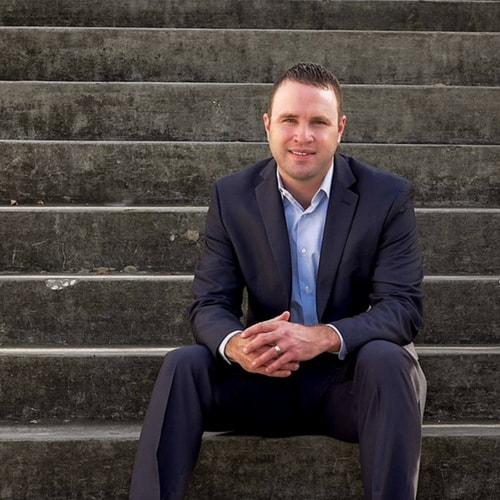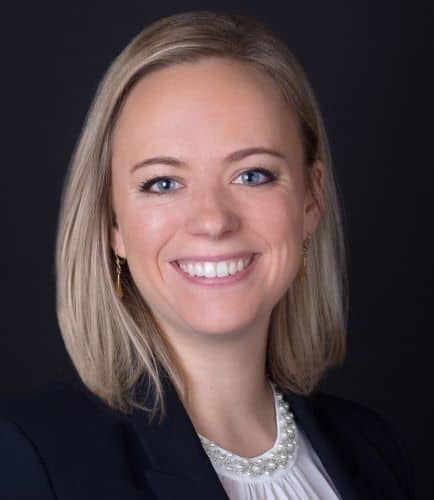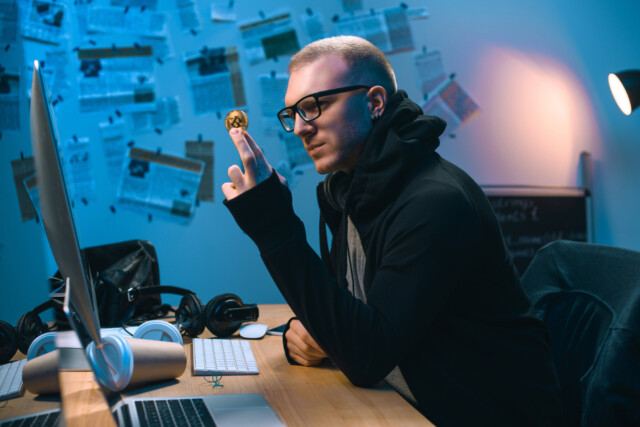
Do you own Bitcoin, Ethereum, or NFTs? A financial advisor specializing in cryptocurrencies and non-fungible tokens (NFTs) can help you make smarter money moves with these digital assets. You’ll likely find dozens of financial advisors in your community well-suited to help you reach your money goals with a personalized plan. But it may be more difficult to find a financial advisor comfortable working with people who invest in cryptocurrencies.
Fortunately, many financial advisors offer virtual services so you can meet online no matter where you (or they) live. This means you can choose to hire a financial advisor who lives hundreds of miles away if you decide their knowledge about cryptocurrencies could help you achieve better investing outcomes.
You’ll also find an increasing number of financial advisors pursuing specialized education to demonstrate their knowledge of cryptocurrencies, for example, the Certificate in Blockchain and Digital Assets (CBDA) and Certified Digital Asset Advisor (CDAA) designation.
Table of contents
Featured Crypto Financial Advisors on Wealthtender
📍 Click on a pin in the map view below for a preview of crypto financial advisors who can help you make smarter investment decisions with cryptocurrencies, NFTs and blockchain technologies. Or choose the grid view to search our directory of financial advisors with additional filtering options.
📍Double-click or pinch pins to view more.
Ask the Experts
We asked crypto experts, Bryan Courchesne and Ryan Firth, to answer the most popular questions on the minds of investors interested in digital assets and crypto investing.
Q: Can you explain the process of buying, holding, and selling cryptocurrencies? Are there specific platforms or exchanges you recommend?
Bryan Courchesne: When starting out we recommend using a reputable centralized exchange like Gemini, Kraken, or Coinbase. They will have UIs that are similar to traditional trading apps. You’ll get the basics of buying and selling crypto. From there you can download wallets and start sending small amounts to them to get the hang of transferring. We recommend starting small and if you want to allocate a significant amount of money initially you should contact a licensed professional. (Get to Know Bryan)
Q: Why should investors interested in cryptocurrencies consider working with an advisor who specializes in this area?
Ryan Firth: A vast majority of advisors, myself included, would probably not suggest to their clients that they invest–or speculate, depending on your perspective–in cryptocurrencies. That said, as long as an investor is going in with his or her eyes wide open and understands the risks, then it’s important to work with a professional who can help him or her identify potential issues and pitfalls. Two of the more important traps regarding cryptocurrencies are tax reporting obligations and custody. A financial advisor who understands the nuances of cryptocurrencies can help clients make informed decisions about whether or not this nascent asset class fits into their portfolio and how it might ultimately help or hinder them from achieving their financial goals. (Get to Know Ryan)
➕ Click Read More just below for additional insights from Bryan and Ryan.
Are you a financial advisor who specializes in cryptocurrencies?
✅ Get added as a cryptocurrency specialist in our next monthly update (Subject to availability and qualification criteria.)
✅ Sign up today and join financial advisors attracting their ideal clients on Wealthtender
✅ Or request more information by email:
Crypto Investing Questions to Ask a Financial Advisor
One good opening question to the advisor could be to ask their thoughts on whether cryptocurrencies are an investment vehicle in their own right. The response will give a good indication of how the rest of the conversation will go.
Based on the answer to the first question you ask your financial advisor about cryptocurrencies, the conversation could end abruptly or, potentially, be the seed for a good relationship. If the signs are positive, you will want to ask additional questions. Here are a few to consider.
Do you have any cryptocurrency holdings in your portfolio?
A good follow-up question is whether the advisor has invested in crypto personally. An advisor interested in the crypto space is one thing, but it could be a red flag if they’re unwilling to put their own money at risk. Finding an advisor who is walking the talk with their own money on the line could be a way of validating whether they believe what they’re saying.
What crypto credentials have you earned?
Two credentials to look for in an advisor are the Certified Digital Asset Advisor (CDAA) and Certificate in Blockchain and Digital Assets (CBDA). These relatively new qualifications cover several of the critical aspects of the asset class, including blockchain technology and decentralized finance. The qualifications give investors assurance that the advisor has a high level of knowledge of cryptocurrency and can speak with authority.
However, for advisors, the qualifications aren’t obligatory, and as Nathan Mueller says,
“For me since I like crypto but don’t have the training behind me and being held to a fiduciary standard, I will talk about the basics of crypto with the clients, how it can play an overall role in their portfolio, and the associated risks. However, I will let them know they need to work with an advisor who is specifically trained in this area if they want recommendations on which cryptos to buy, hold, and sell.”
Are you helping any other clients with their crypto investments?
By this point, there’s a good chance there may be a fit and the start of a good working relationship. But before getting too ahead of yourself, you might want to find out whether you would be the only crypto client the advisor is working with or one of many.
There’s an argument in favor of being the only client – the advisor is wholly focused on you. However, if you’re one of a few crypto clients with a seasoned financial advisor, many of the detailed, technical questions you have, are likely to have already been asked. You should expect substance in what they say rather than something that pads out a light answer.
Should I invest directly in cryptocurrencies or use investment vehicles like an ETF or IRA for exposure?
As you might have guessed, a client should ask this question once an advisor/client agreement is in place. It’s a reasonable question since while numerous exchanges provide a direct route to ownership of cryptocurrencies, there are also several alternative indirect ownership methods.
A knowledgeable advisor with the proper credentials can advise on the pros and cons. The ProShares Bitcoin ETF, Grayscale Trust, and CME Bitcoin Futures are examples of alternatives; the latter is a leverage instrument that brings added implications for risk.
And a financial advisor who knows the ins and outs of cryptocurrencies can also help ensure you don’t fall victim to crypto scams.
What are the tax implications of holding cryptocurrency directly?
One other relevant question considers the tax implications of both direct and indirect ownership of cryptocurrencies. Working with a financial advisor has the advantage of providing you with the benefits and drawbacks of each investment option and how they will affect your taxes.
You’ll probably find dozens of financial advisors in your area that can help you attain your financial objectives with a customized strategy. However, finding a financial advisor who is comfortable working with cryptocurrency may be more challenging.
Hopefully, these questions will help you identify a financial advisor who understands digital assets and can help you incorporate blockchain-related investments into your portfolio.
Reader Questions Answered:
Q: I am looking for advice when it comes to selling cryptocurrency. I have invested some money in cryptocurrency on the exchange Coinbase and the currency I’ve invested in is skyrocketing. It is not quite at the point where it’s made a difference yet, but I would like to be prepared on what to do if it gets to that point where I am dealing with a significant amount of money. Such as, how to sell without being hit with the highest fees and turning the crypto into USD before it comes volatile. Obviously, if it comes to that, I will be requiring financial assistance to plan and make the most out of my financial windfall. Any advice on what to do if it comes to that point would be greatly appreciated, as my internet searches have come up empty. Do you have my knowledge on the subject of how to sell crypto? Or at least can you point me in the direction of talking to someone who has experience in this matter? I know it seems like I’m putting the cart before the horse but I just want to be 100% prepared to make the move if I want to and the opportunity presents itself. Thank you for your time, Shawn K.
Ryan Firth (October 6, 2021): Hi, Shawn. Thank you for your detailed question. I recommend that you develop a plan to sell your crypto in batches when the price reaches specific price targets; similar to dollar-cost averaging. For example, let’s suppose you have 5 bitcoins (BTC). If BTC reaches $60,000 you sell 1 coin, if it reaches $75,000 you sell 2 coins, etc. If you use Coinbase Pro, you can set limit orders so that specific amounts of crypto are sold when the price in U.S. dollars reaches a certain point. If you aren’t on Coinbase Pro, the retail version of the Coinbase app can send price alert notifications on your mobile phone, but I don’t believe you can customize the notifications to a specific target price. You should also be aware that Coinbase has notoriously bad customer service and the website and mobile app sometimes get inundated with network activity to the point that you can’t place trade orders when there are significant price movements, which can be quite frustrating. Also important is to be aware that if you sell your crypto for a gain (i.e., you sell it at a price that is more than what you paid for it), you will owe taxes on those gains, so be sure to set aside money so you can pay the tax come filing time. If necessary, reach out to a tax professional. I hope this helps. If you have any additional questions, please feel free to reach out to me.
Q: My husband has bought Ethereum, NFT’s, UNIswap, and Shiba. I don’t understand the crypto world, I’m just wondering if ‘BUYING’ those, is the same as ‘INVESTING’ in them? Or are they 2 different things? If so, how are they different? – Christine
Ryan Firth (October 14, 2021): Some view cryptocurrencies skeptically as mere speculation; a mania driven by the greater fool theory. While others hold (or should I say HODL?) cryptocurrencies in high regard; their enthusiasm can appear to border on fanaticism and cultism. I think a moderate approach between these two views is healthy. It’s good to be excited about investing, but it’s also wise to have a good deal of emotional detachment, which can be difficult for many investors because we’re humans with feelings, not robots. I think the question to ask your husband is what prompted him to acquire his crypto? What does he think about his purchases? Perhaps some questions along these lines will open a dialogue that will reveal the answers to your questions.
Q: How do you (Ryan Firth) get paid? – Jeff Milkey
A: Ryan Firth works with clients who pay for his services on an hourly basis. You can learn more by visiting the FAQ page of Ryan’s website.
How Do I Become a Crypto Financial Advisor?
To become a crypto financial advisor, you first need to meet federal and/or state regulatory requirements before you can offer personalized investment advice to consumers. In addition to formal education and licensing requirements, crypto financial advisors should consider earning advanced designations that demonstrate their commitment to understanding cryptocurrencies and digital assets.
For example, the Certificate in Blockchain and Digital Assets (CBDA) and Certified Digital Asset Advisor (CDAA) designation are credentials growing in popularity among financial advisors interested in assisting their clients with blockchain-based investments.
Can I Buy Bitcoin in My 401(k) Plan?
Fidelity Investments announced a new offering on April 26, 2022 that will make Bitcoin available to millions of employees through their 401(k) plan as early as summer 2022. In its groundbreaking announcement, Fidelity explained their new Digital Asset Account (DAA) would enable individuals to save a portion of their retirement savings in Bitcoin alongside traditional investments like mutual funds and ETFs. Learn more about buying Bitcoin in 401(k) plans.
Slide Show: Looking for a Financial Advisor Cryptocurrency Specialist?
📰 Browse Related Articles
🙋♀️ Have Questions About Cryptocurrencies & NFTs?
Are you ready to enjoy life more with less money stress?
Sign up to receive weekly insights from Wealthtender with useful money tips and fresh ideas to help you achieve your financial goals.
About the Author

Brian Thorp
Founder and CEO, Wealthtender
Brian and his wife live in Texas, enjoying the diversity of Houston and the vibrancy of Austin.
With over 25 years in the financial services industry, Brian is applying his experience and passion at Wealthtender to help more people enjoy life with less money stress.































